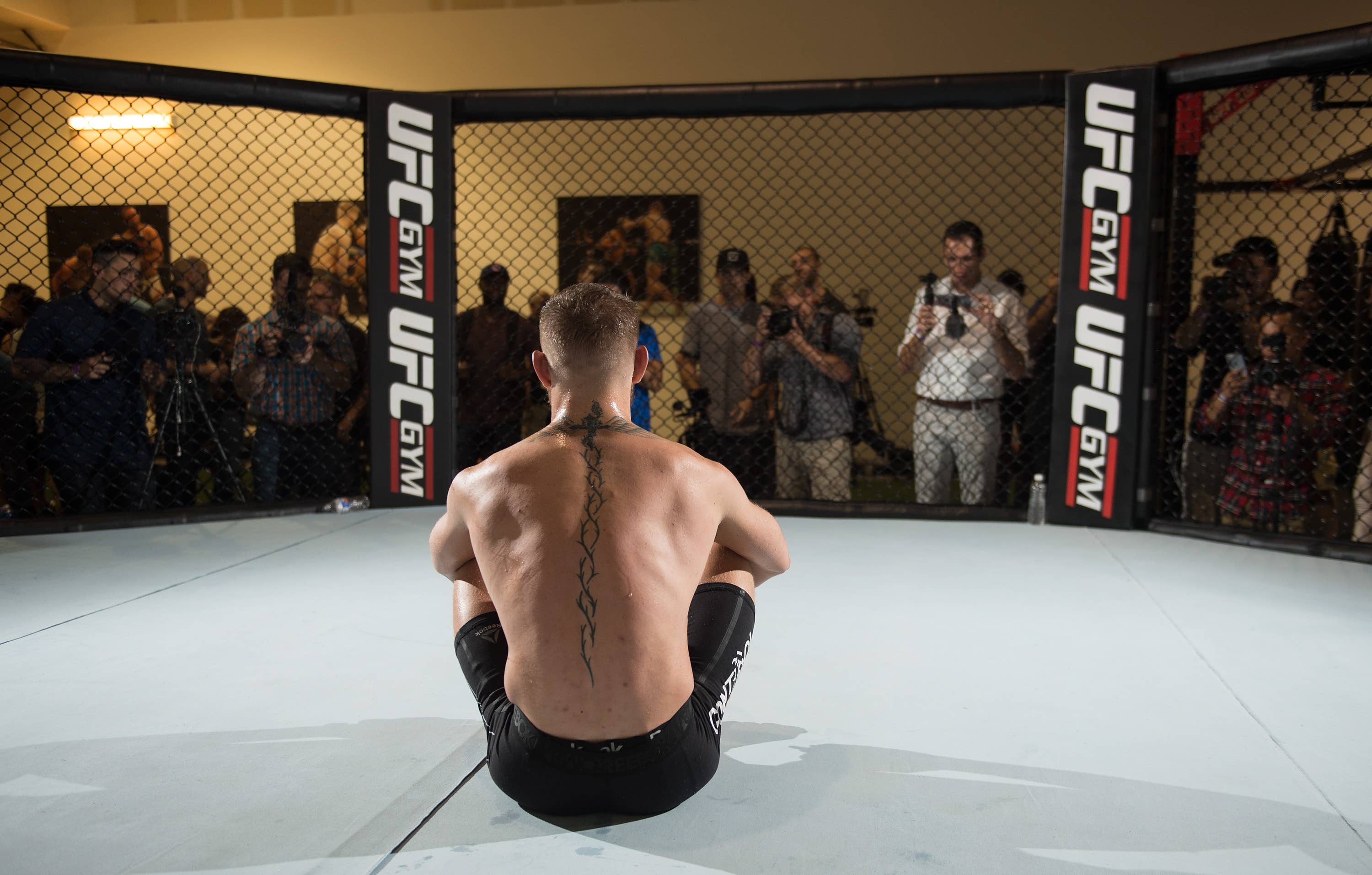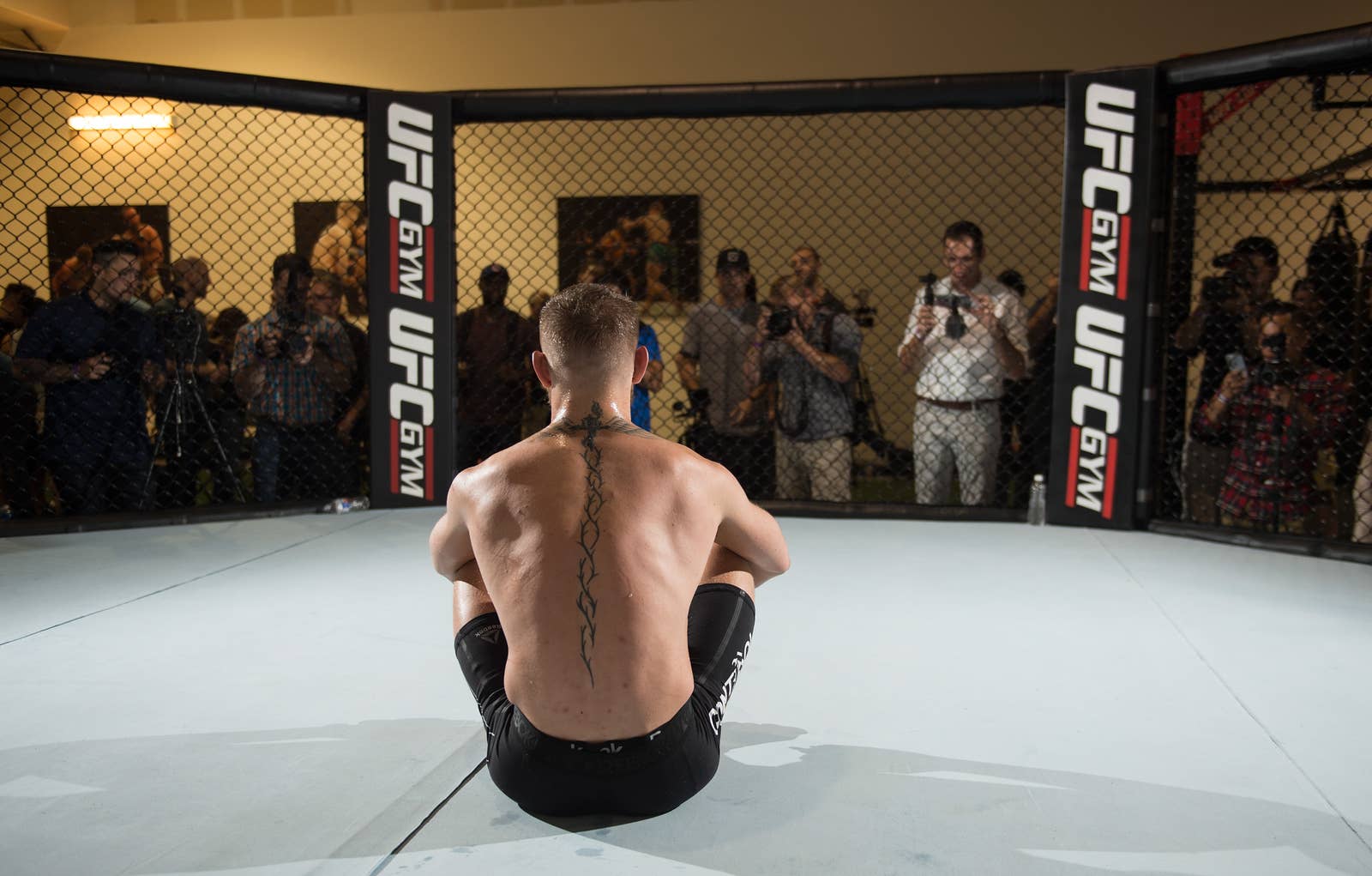
The vaulted ceilings and marble columns of New York's Cipriani’s were bathed in soft blue and red spotlights. Along the side walls of the magnificent room were two open bars, the bottles lined up like rows of soldiers, and the glassware sparkling under the arc lights. Tuxedoed waiters and waitresses carried trays of canapés while a giant TV toward the back of the room played an endless loop of high-resolution images.
“I can’t believe this. It’s like the Academy Awards,’’ said one wide-eyed guest.
More like the cocktail hour at the wedding of Don Corleone’s daughter. But the truth was even stranger than that.
The formal affair was thrown in honor of Showtime Sports announcing its 2018 boxing schedule—or more accurately, for just the first six months of 2018—an ambitious slate of 10 shows featuring a dozen world title fights spread across a half-dozen locations. Not bad for a sport perpetually on the respirator, ravaged by a cascade of woes ranging from an aging fanbase, a dearth of compelling performers, and a formidable young challenger called mixed martial arts.
But like a lot of popular narratives, this one turns out to be not entirely true. For one thing, boxing’s fanbase is getting younger, not older. For another, the fight game has seen an influx of young talent that gave boxing a much needed shot in the arm in 2017. Talk to the right people, and they'll tell you that the young interloper called MMA-slash-UFC may have peaked.
While the Showtime announcement wasn't headline news around the sports world, the shockwaves were felt across the small landscape of combat sports. Most especially 2,000 miles away in Las Vegas. That’s where the Ultimate Fighting Championship is housed, from which president Dana White has been predicting the death of boxing at the hands of mixed martial arts for the better part of a decade.
"My honest opinion of boxing is that boxing will go away," White said in 2010. "I don't wish it any ill will. It's not because the sport isn’t good or anything like that, it's just that it's so fragmented, and so many bad things have happened. Nobody is going to stick their hand in their own pocket and spend their own money to save the sport of boxing, nobody is going to do it."
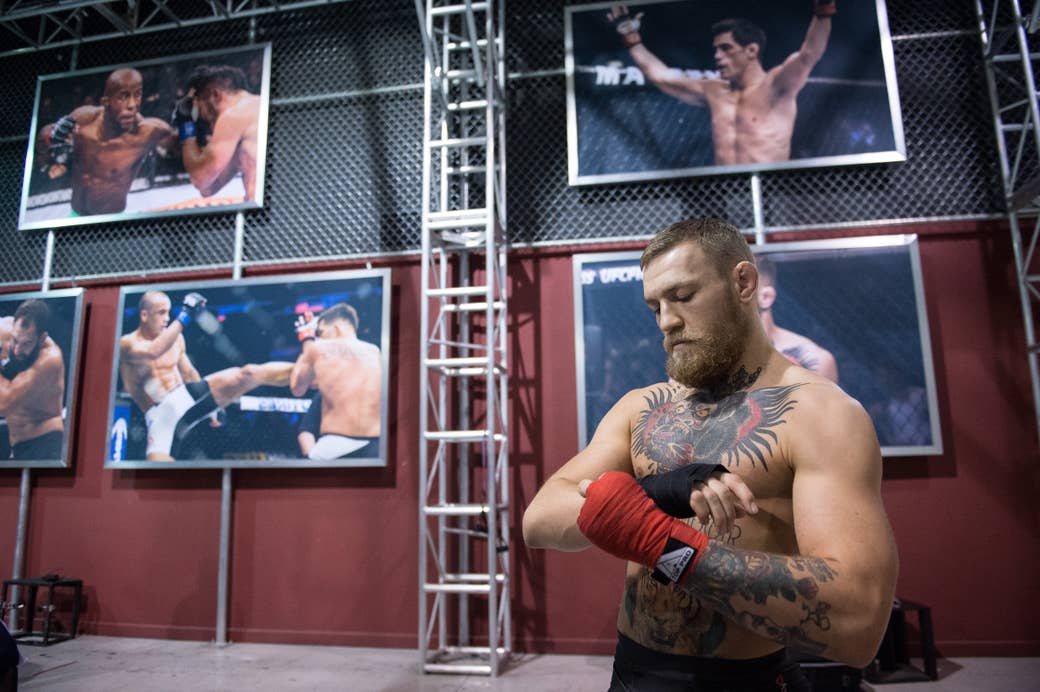
Well, approximately 25 years after its introduction, MMA and other submission-type combat sports seem to have run into a wall. The word industry insiders and observers use, time and again, is “plateaued.’’ So much for the popular narrative that MMA would be the asteroid that would render boxing, like the dinosaurs, into extinction.
“It hasn’t happened and it’s not going to happen,’’ said Dave Meltzer, publisher of the Wrestling Observer Newsletter and one of the main chroniclers of mixed martial arts since its inception approximately 25 years ago. “If boxing dies, it won’t be because of MMA. It will be because of boxing.’’
Like Hyman Roth in The Godfather dying of that same heart attack for 20 years, boxing—which has existed in some form or for 5,000 years—continues to soldier on, and even to thrive in spite of itself.
Boxing’s wounds have been self-inflicted. There's the fragmentation of its championships due to the rise of its corrupt “sanctioning organizations.’’ It's watered down titles by means of shoehorning “junior’’ divisions between the original eight weight classes. The decision to put all of its biggest events on Pay-Per-View is greedy and short-sighted, limiting the size of its audience to a small core of diehards.
Still, the biggest sporting event of 2017 was, essentially, a boxing match: the freak event matching "retired" five-time world champion Floyd Mayweather Jr. against UFC star Conor McGregor. The bout sold more than four million PPV subscriptions at an average of $100 per home, enriching the fighters to the tune of a reported $300 million for Mayweather and $100 million for McGregor, who as a boxer was making his professional debut.
Take Mayweather-McGregor out of the equation and boxing still remains the undisputed champion of combat sports. Despite the hype, most of it flowing from the mouth of White, the bombastic face of UFC, the seven top-grossing combat sports events of all time are boxing matches, and if you include the outlier—Mayweather-McGregor—boxing has the top eight spots.
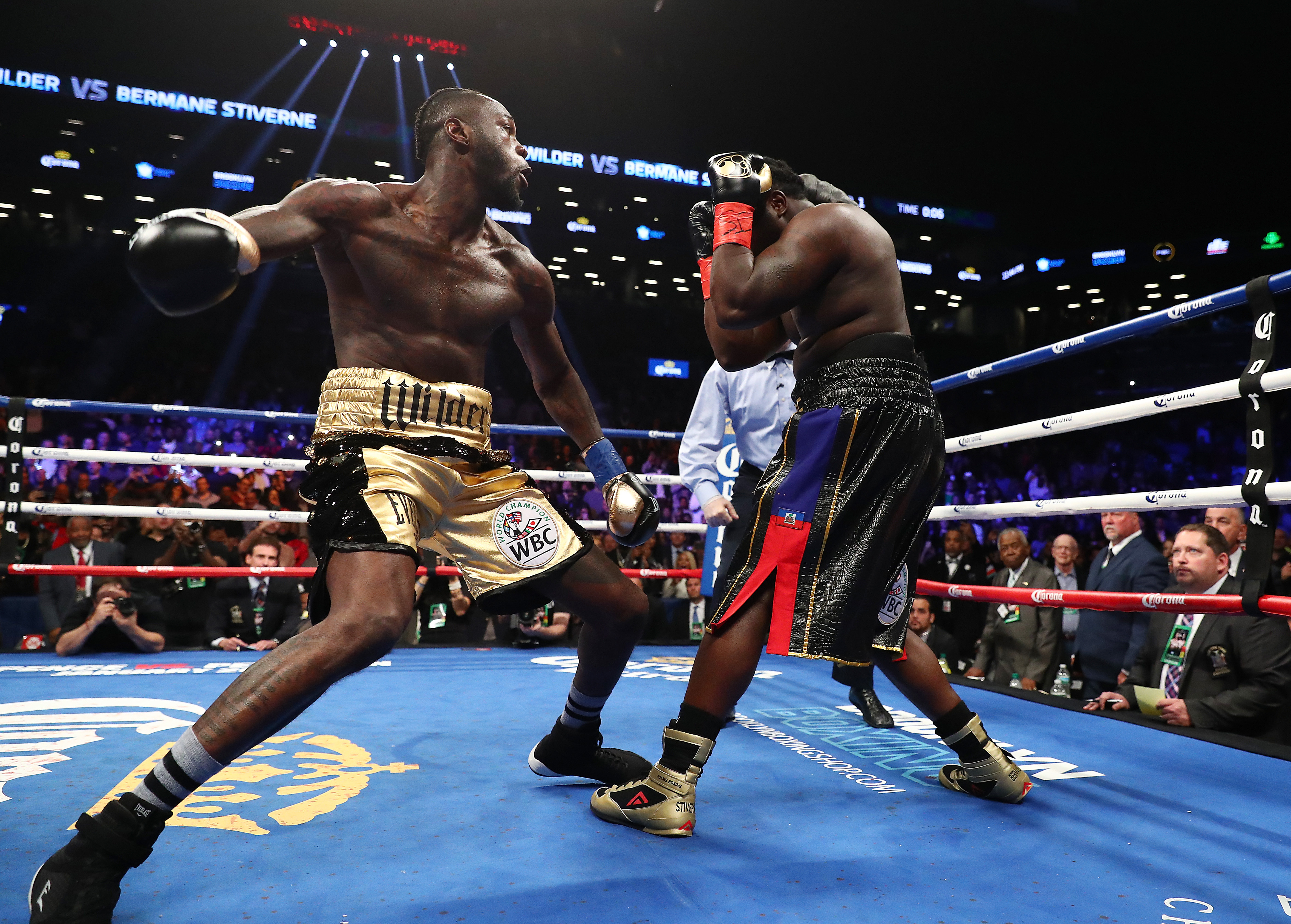
The purses for the top performers in each sport are ridiculously inequitable—again, removing McGregor’s estimated $100 million purse for the Mayweather circus from the mix. Boxing set the world on its ear nearly a half-century ago when Muhammad Ali and Joe Frazier were paid an unheard-of $2.5 million each for their epic 1971 battle.
By the 1980s, it became routine for boxers in high-profile main events such as Sugar Ray Leonard, Marvin Hagler, Thomas Hearns, and Larry Holmes to earn upwards of $10 million for a single night’s work. More than 20 years ago, Evander Holyfield and Mike Tyson were paid $30 million each for their second fight, and as far back as 1927, Gene Tunney cashed a $1 million check for beating Jack Dempsey in the fabled Battle of the Long Count.
And yet, no UFC main event had been guaranteed for anything even close, until the $800,000 paid to Anderson Silva in 2015. UFC’s first million-dollar guarantee went to McGregor in March 2016, and McGregor was arguably as big an attraction in MMA as Tyson had been in boxing. And it is impossible to know for sure what percentage, if any, of UFC’s formidable Pay-Per-View revenue actually goes to the fighters.
A big part of the reason is that unlike boxers, MMA fighters are not protected by the Muhammad Ali Act—a federal law enacted in 2000 to ensure physical and financial protection for boxers. MMA fighters, even the stars, have very little power to negotiate their own purses.
It is true that undercard fighters on MMA events often are paid more than boxers in a similar position. UFC contracts generally call for a minimum $10,000 purse with a matching bonus if the fighter wins, but those fighters are usually far more experienced than their counterparts who fight in boxing preliminaries.
And because of White’s all-powerful position as the one and only real promoter of his sport, there is no comparable outlet for MMA fighters to peddle their skills. It is not unlike the way Vince McMahon runs WWE, in which matches were marketed as events more than matchups of individual fighters, which kept the athletes subservient to the organization.
As a result, MMA/UFC has been unable to develop young stars to take the place of McGregor and Ronda Rousey. Combat sports, which thrive as much on personality as performance—like Mayweather and McGregor—wither when the fighters become faceless and interchangeable.
“My thought is we’ve kind of hit a plateau,’’ said Chris Palmquist, a combat sports journalist who is the COO of MMA.tv. “We’ve definitely seen it. Doesn’t mean it won’t get out of that plateau and grow again. There was an explosion three or four years ago, but the loss of stars like (Ronda) Rousey has hurt, and McGregor hasn’t fought in MMA in over a year.’’
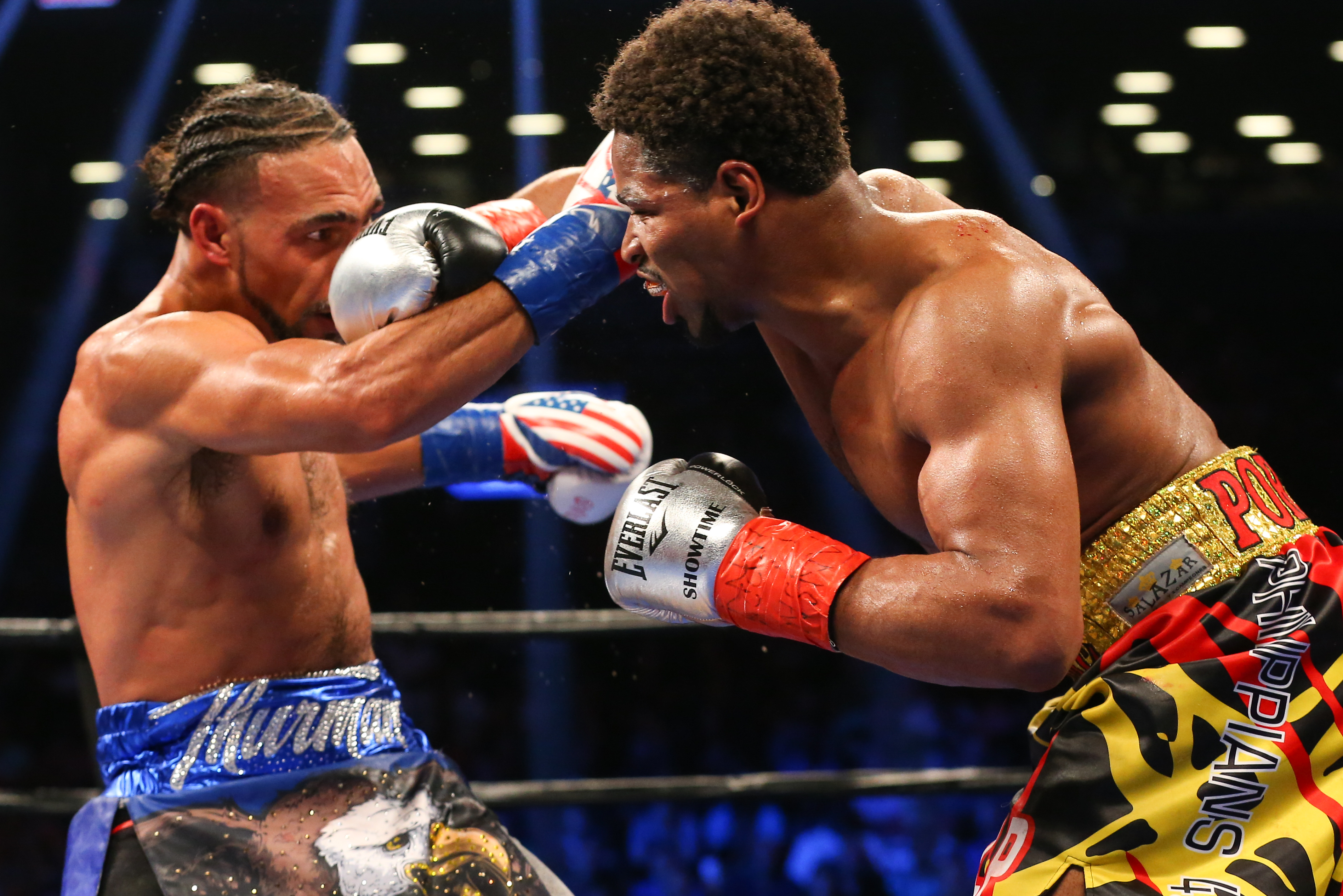
Currently, boxing's star power outshines MMA with heavyweights like Deontay Wilder and Anthony Joshua; welterweights like Errol Spence Jr., Terence Crawford, Keith Thurman, Shawn Porter, Danny Garcia, and Jeff Horn; and middleweights like Canelo Alvarez and Gennady Golovkin.
Right now the biggest name in MMA is probably George St-Pierre, who had to be lured out of retirement to provide the UFC with an attraction to replace McGregor. And St-Pierre, or GSP, as he is known, is suffering from an illness that night keep him out of the octagon for all of 2018.
Rousey announced her future is in wrestling and no one knows if the unpredictable McGregor—who shouted, “Watch me take over boxing!’’—will ever fight again, in the octagon or in a boxing ring.
To illustrate the dearth of quality attractions in MMA/UFC these days, insiders talk of a projected bout between the oft-suspended Jon Jones and 40-year-old Brock Lesnar as a “dream matchup.’’ As a result, not only has MMA not pulled away from boxing, as many expected, it has in fact lagged behind.
“MMA had big declines in everything but revenue in 2017,’’ Meltzer said. “And the revenue increases were all because of one fight [Mayweather-McGregor].’’
The explosion of MMA a couple of years ago, allowed White, the president of UFC, and Lorenzo and Frank Fertitta, the co-owners, to cash out in 2016, selling UFC to the William Morris Endeavor-International Marketing Group for a reported $4 billion.
"The book on UFC has yet to be written. But it's pretty clear that reports of the death of boxing are greatly exaggerated."
A big part of the sales pitch to WME-IMG was that UFC, which was near the end of a $168 million TV deal with Fox Sports, would be renewed for something like $400 million in 2018, according to industry insiders. But negotiations have reportedly have hit a snag, with Fox offering something like $200 million, due to declining ratings in 2017.
The primary reason for that decline is because MMA, and particularly UFC, has not performed as expected with its much sought-after younger demographic.
White was quoted as saying, “UFC is definitely a younger guy’s sport. Our target audience is anywhere from age 17 to 35," but in actuality the audience is getting older. According to a Sports Business Journal report published in June, MMA had a decidedly younger audience than boxing in 2006. The median age of an individual identifying as an MMA fan was 34. The median age of a boxing fan was 47.
Ten years later, Sports Business Journal says the median age for fans of both sports was exactly the same: 49. Which means, of course, that while the original MMA/UFC crowd has aged, the sport has not attracted many younger fans.
Perhaps most surprisingly, the median age for boxing and MMA was younger than that of the NFL (50), college football and basketball (52), and MLB (57). Only the NBA (42) and MLS (40) had younger audiences, respectively. And a recent Washington Post/UMass Lowell poll revealed that 28 percent of U.S. sports fans called themselves fans of boxing, as opposed to 25 percent for MMA.
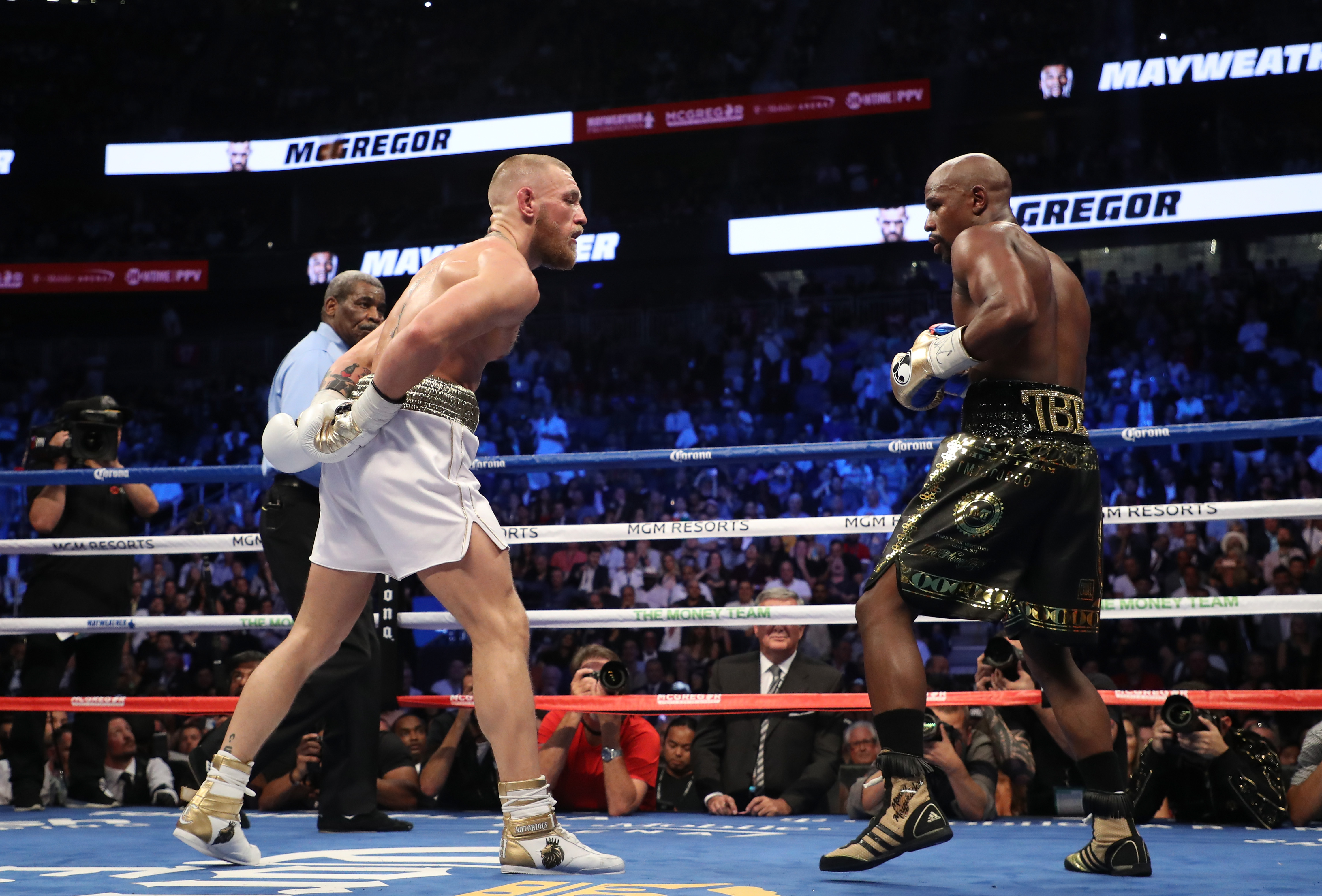
The truth is, while professing to have learned from the mistakes of boxing promoters—“I watch boxing to see how not to do it,’’ White has said—UFC has, in fact, repeated many of boxing’s most egregious errors by watering down its championships, creating “interim’’ titles, and over-saturating the marketplace with too many events, a mistake the NFL seems to be making as well.
And due to complaints from some of its athletes about their inability to negotiate purses in line with UFC’s astronomical profits, MMA might soon find itself compelled to abide by the provisions of the Muhammad Ali Act. A hearing was held on Capitol Hill in November on the matter, with Randy Couture, one of the UFC’s biggest former stars, giving strong testimony in favor of regulation.
“The book on UFC has yet to be written,’’ said Stephen Espinoza, the president of Showtime Sports, “but it’s pretty clear that reports of the death of boxing are greatly exaggerated.’’
Espinoza worked with Dana White on the Mayweather-McGregor promotion, an association that ended acrimoniously when White accused Showtime of under-reporting the bout’s PPV numbers.
White, who declined a request to be interviewed for this story, went public with their feud, calling Espinoza “a weasel,’’ and vowing never to work with Showtime again.
But where, exactly, will he work next?
Although he retains his position as president of the UFC, in November White told the Los Angeles Times, “I’m getting into boxing 100 percent.’’
Of all the available evidence showing that boxing has more than wrestled MMA to a draw, that might be most telling of all.

